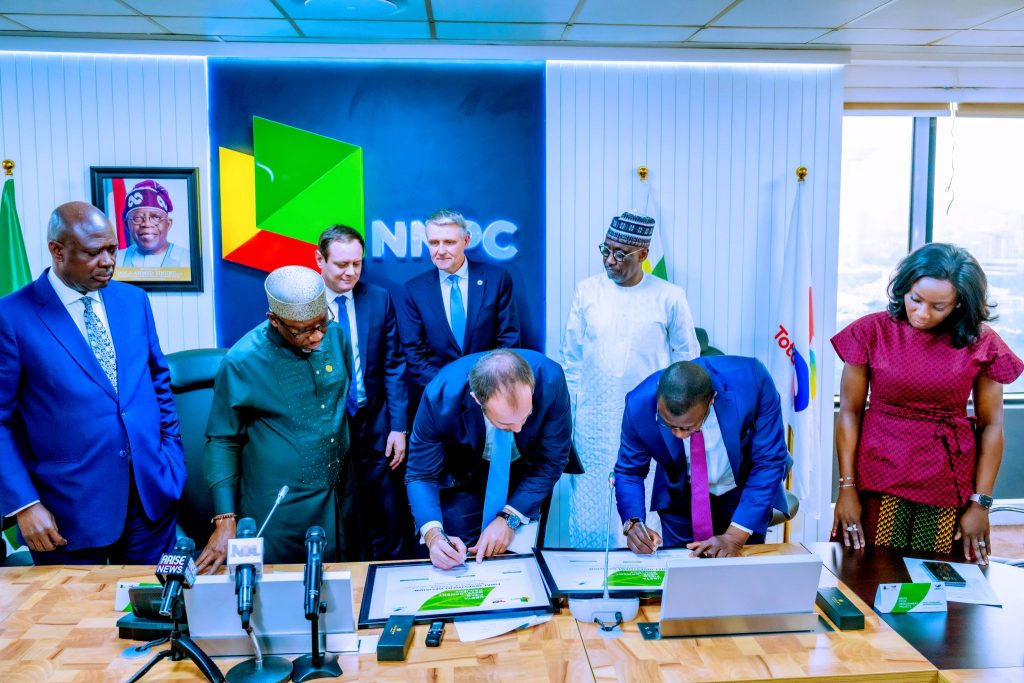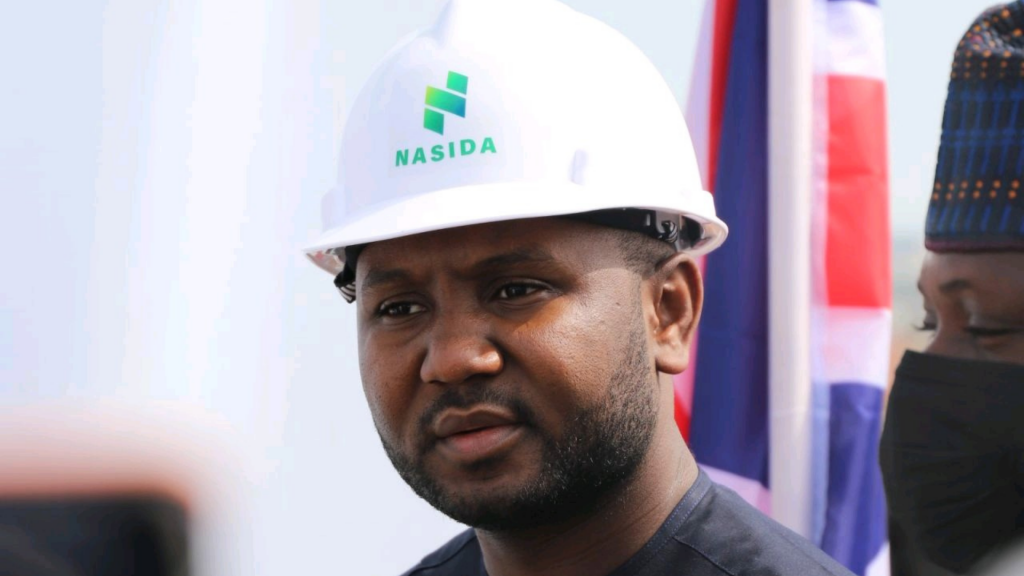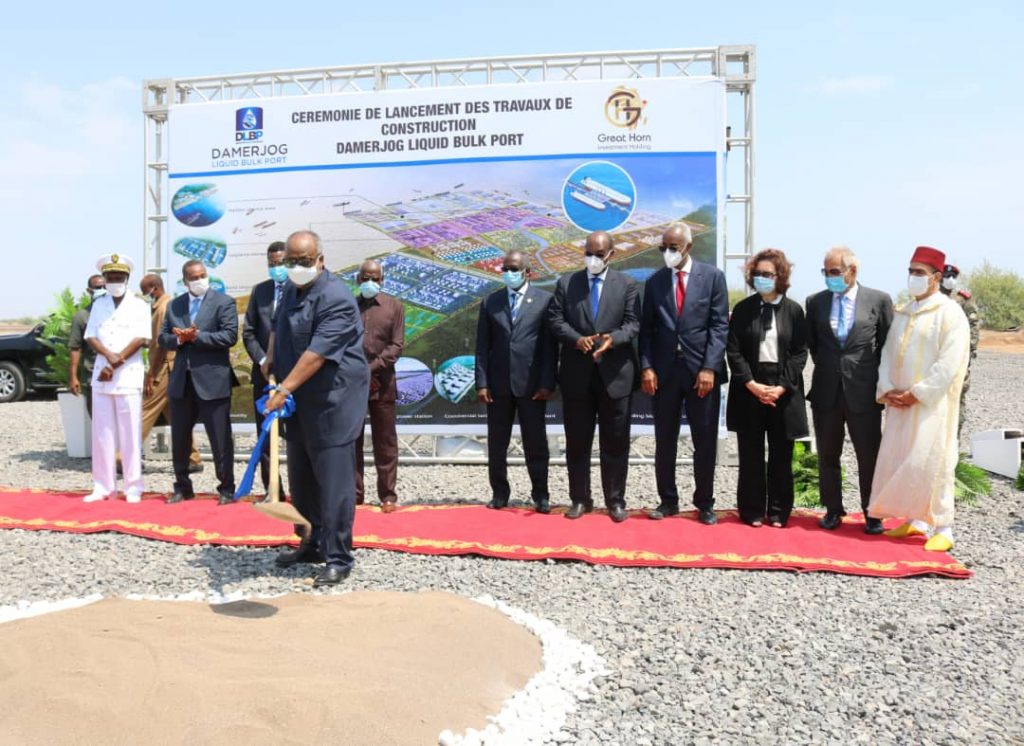Foreign Direct Investment

NNPC and TotalEnergies announce $550m investment in Nigeria’s Ubeta Gas Field
The Nigerian National Petroleum Corporation and TotalEnergies have announced a $550 million investment decision for the development of the Ubeta Field, a key onshore gas project expected to provide feedstock to Nigeria LNG – Africa’s biggest LNG export terminal. The project is located within OML 58, a TotalEnergies-operated onshore license that frequently suffers production disruptions due to pipeline vandalism and crude theft. The Ubeta field, discovered in 1964 and located northwest of Port Harcourt in the Niger Delta, is projected to produce about 350 million standard cubic feet (MMscf/d) of gas and 10,000 barrels of associated liquids daily. This development is expected to contribute significantly to the supply for NLNG’s Train 7. “Ubeta is the latest in a series of projects developed by TotalEnergies in Nigeria, most recently Ikike and Akpo West. I am pleased that we can launch this new gas project which has been made possible by the Government’s recent incentives for non-associated gas developments,” TotalEnergies’ Senior Vice President for Africa, Exploration & Production, Mike Sangster, said in a company statement. “Ubeta fits perfectly with our strategy of developing low-cost and low-emission projects, and will contribute to the Nigerian economy through higher NLNG exports.” At the official signing event at NNPC Towers, Group CEO Mele Kyari expressed appreciation for the Tinubu administration’s support in fostering a conducive fiscal environment that has been instrumental in reaching this significant FID. “The Presidential Executive Order is instrumental to us getting to this significant milestone, and we are now seeing the impact of the policy,” Kyari said. Slated for a 2027 start-up, the Ubeta gas condensate field in OML58 will be developed with a six-well cluster connected by pipeline to the existing Obite treatment plant. The development plan includes a 5 MW solar plant and electrification of the drilling rig to reduce carbon intensity. TotalEnergies and NNPC are also focusing on local content, with more than 90% of manhours expected to be worked locally. The Ubeta Field’s FID marks a significant step in NNPC’s ongoing efforts, supported by the executive branch, to address the challenges that have historically hindered foreign investment in Nigeria’s oil and gas industry. The project is expected to stimulate economic growth, create job opportunities, and generate substantial value for various stakeholders.
Read more »
This Nigerian state gets serious about boosting private sector growth
Located just southeast of Nigeria’s capital Abuja, the State of Nasarawa is often overlooked to the benefits of the Federal Capital Territory or bigger industrial states like Kaduna to the north and Kogi to the south. But its government is actively trying to change that and developing new private sector cooperation to boost public infrastructure. In August, its state executive council approved the set-up of five new public-private partnerships (PPPs) to boost development across the state and revitalize its economy. They notably follow the adoption of a new law setting up the Nasarawa Investment & Development Agecy (NASIDA) and concerted efforts to support private sector growth. Chief amongst those projects is the Nasarawa Technology Village in partnership with ABS Blueprint and Modern Shelter. The PPP project integrates housing, technology centers and commercial facilities and echoes a similar venture developed in Abuja, the Abuja Technology Village Science and Technology Park (STP) and Special Economic Zone (SEZ). In transport, the state is pushing ahead with the establishment of the Nasarawa Transport Company to support trade and investment. The initial steps notably rely on the construction of modern bus terminals in various stage of development across the state. Healthcare is another priority with the concession of services offered within the Dalhatu Araf Specialist Hospital in the state capital, Lafia. The operations and maintenance and three key departments within the facility are being given to the private sector, including radiology, laboratory, and mortuary. The Concession Agreement for the Concession of Radiology and Lab Services was signed on September 6th this year with DNA Labs Limited. If successful, this innovative concession model would boost private sector investment in the state’s healthcare system while improving service delivery. Because of their continued fiscal deficits and unstable macroeconomic outlook, most Nigerian states do not qualify to issue sub-national bonds that could support their infrastructure development. As a result, several state governments have been reviewing their legislation to become more competitive and attract private sector investment. The move is seen as encouraging to diversify economic activity beyond Lagos and creating a healthy competition between states.
Read more »
Despite Lack of Natural Resources, Djibouti Attracts Major Investments in Infrastructure
Djibouti has no natural resources, a land area of only 23,200 km2 and a population of 1m. Yet, the country has attracted billions of dollars of investments over the past decade, making some of Africa’s biggest economies look up to it with envy. Foreign investors from China, the Middle East and the United States are injecting billions into the country’s ports, oil & gas terminals, free trade zones and a 750km rail line that serves Ethiopia’s population of over 110m. That railway line alone can carry 2,600 tonnes of wheat and fertilisers and 110 containers per trip. At a time when African countries continue to decry the lack of investment into the continent’s infrastructure, Djibouti is forging ahead and using its geographical location to build the trade and services infrastructure of tomorrow. Geography is the country’s biggest asset: Djibouti is located on the strait of Bab-el-Mandeb on the north-east edge of Africa, where 30% of the world’s shipping passes on its way to the Suez Canal. Coupled with political and economic stability, Djibouti offers investors a safe haven to tap into the world’s most dynamic globalization routes while serving Africa’s growing population. It also helps that its neighbours Eritrea and Somalia continue to be plagued with insecurity and instability. Djibouti’s ports and container terminals remain amongst the most productive in the world. According to a new global container port performance index compiled by the World Bank and IHS Markit, its port is even the most efficient in Africa measured by minutes per container move. With such efficiency, Djibouti’s goal of emulating Singapore as a leading maritime trading hub is within reach. To cement its position as the world’s future big trading hub, Djibouti recently set up a sovereign wealth fund with a view to finance about $1.5bn of domestic business activity over the next decade. In parallel, the country has embarked on significant infrastructure expansion with the Djibouti Damerjog Industrial Development Free Zone, echoing Singapore’s own Jurong petroleum and petrochemicals hub. The industrial park represents a 15-year undertaking and is expected to house integrated energy and petrochemicals facilities and further position the country as a strategic energy and industrial hub meeting the needs of the East African sub-region. While the complex was initially conceptualised to export South Sudanese oil, it eventually developed into a mega industrial and petrochemicals scheme. The ultimate oil complex will cover 80ha, starting with the development of 32ha comprising of 300 000 m3 storage tanks, an oil jetty and railway infrastructure connected to the Nagad Station, and from there to the Djibouti-Addis Abebe railway line. It will also include the construction of a 6 million tonnes refinery by the China Marine Bunker Co. Ltd (CHIMBUSCO) that will refine Saudi and Sudanese crude into marine fuels with a sulphur content of no more than 0.50%S, along with diesel, naphtha and LPG. The facility would primarily meet demand for Djibouti and Ethiopia and be followed by the construction of an onshore refinery. The industrial park will also benefit from a 150MW gas-to-power plant, starting with a 20MW hybrid power station expected to be commissioned in 2022. Such power supply will be key for all upcoming manufacturing units in the park built by Chinese investors and including steel, metal mesh, PVC pipes and glass. The anchor project for the whole complex is the Damerjog Liquid Bulk Port, Djibouti’s seventh port, built by Moroccon contractor SOMAGEC. President of Djibouti Ismaïl Omar Guelleh laid the foundation stone there in September 2020. Details on the Damerjog industrial park and liquid bulk terminal can be found in the “Projects” section within your Hawilti+ research terminal.
Read more »